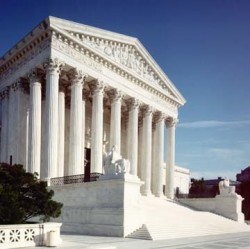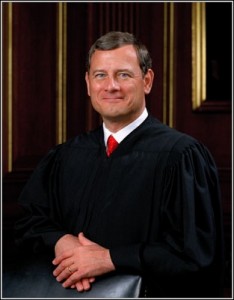 Sometime this month, perhaps even today, the U.S. Supreme Court will hand down a ruling with potentially far-reaching implications for employers.
Sometime this month, perhaps even today, the U.S. Supreme Court will hand down a ruling with potentially far-reaching implications for employers.
So much has been reported and written about the case of Ricci v. DeStafano that it’s almost impossible to have missed the story of how 20 New Haven, Conn. firefighters were denied promotions although they came out on top in civil service tests for lieutenant and captain. Eighteen of the top scorers were white; two Latino. None were black, although the city is 37 percent black and blacks made up 30 percent of the fire department in 2003, when the test was given.
When the city’s Civil Service Board got the results, it feared certifying the test would expose the city to a Civil Rights lawsuit on the basis that the test had a disparate impact on a protected minority. But not certifying the results meant an almost certain lawsuit from the successful candidates who might claim, as they later did, that they had been discriminated against based on their race. A part of Title VII of the Civil Rights Act of 1964 makes it illegal to “alter the results of, employment related tests on the basis of race, color, religion, sex, or national origin.“
The Morton’s Fork faced by the board was underscored by its 2-2 vote on certification, an outcome that meant the test results were not certified.
New Haven’s dilemma was neatly described by Justice David Souter during the Supreme Court hearing on the matter in April.

“The problem I have with your argument,” he told the attorney for the firefighters, “is that it leaves a municipality or a governmental body like New Haven in a damned if you do, damned if you don’t situation… If they go forward with their hiring plan, they certify the results and go forward with it, they are inevitably facing a disparate impact lawsuit.
“If they stop and say, ‘Wait a minute, we’re starting down the road toward a disparate impact lawsuit and, indeed, there may be something wrong here,’ they are inevitably facing a disparate treatment suit. And whatever Congress wanted to attain, it couldn’t have wanted to attain that kind of a situation.”
Key questions
The key question the Supreme Court must decide is: Can a municipality — and potentially any employer — can reject the results of a test for racial reasons, even if a disparate impact is not proved? There are two other specific questions presented for the court, but they boil down to the same fundamentals.
Under court decisions and the Civil Rights Act of 1964 as amended by Congress in 1991, an employer can be found to have discriminated, and thus be in violation of the law and subject to civil penalties, if a “facially neutral employment practice… has an unjustified adverse impact on members of a protected class.”
But if the employer can show the test is job-related and there is a business necessity for its administration — say, testing the ability of a firefighter candidate to hoist a ladder while dressed in full gear — then the employer may be able to escape liability. However, there is a loophole here. The group claiming discrimination may still prevail if it can show that there are other, equally valid assessment methods meeting the employer’s objectives that don’t result in a disparate impact.
Job simulations
In the only published academic research comparing the results of pencil-and-paper tests (like the one administered to the New Haven firefighters) and interactive simulation testing, Amy Mills, of Aon Consulting, and Dr. Neal Schmitt of Michigan State University found little difference in the predictive value of the two on job performance. They did find that with the simulation, the performance of minority candidates was similar to that of white candidates. On the pencil-and-paper tests, minorities scored significantly lower.
“There’s less of an adverse impact in simulations than in the pencil-and-paper tests,” Schmitt told us for an article published in the May 2009 issue of the Journal of Corporate Recruiting Leadership.
In fact, in the New Haven test, the city weighted the written multiple-choice part, which is the subject of the lawsuit, at 60 percent of the overall score. An oral exam was weighted at 40 percent.
Though the disappointed firefighters presented evidence supporting the test, while the city offered statistical data to demonstrate a prima facie case of disparate impact, the validity of the test as a promotional tool was never actually at issue. Instead, the federal court ruled that the city had the right to throw out the results.
In ruling for the city, U.S. District Judge Janet Bond Arterton called the city’s decision “race neutral,” since “all the test results were discarded, no one was promoted, and firefighters of every race will have to participate in another selection process.”
The Second Circuit Court of Appeal upheld the decision in a single paragraph, that has now become a central part of the national judicial debate because Supreme Court nominee Sonia Sotomayor was one of the three judges to hear the firefighters appeal.
What will the court do?
Many observers think the court will rule in favor of the firefighters.

Chief Justice John Roberts signaled his dissatisfaction when he asked during the oral arguments if the city was to “get do-overs until it comes out right?”
Justice Antonin Scalia challenged the idea that the city had been racially neutral in tossing the results. “It’s neutral because you throw it out for the losers as well as for the winners? That’s neutrality?”
If the court does overrule the lower courts, it could simply order the case back to the lower court to decide the city’s motives in tossing the test. The city would then be in the uncomfortable position of attacking the validity of a test it commissioned and approved, but Title VII would remain intact.
The possible, broader implications of a reversal could be the watering down of the “disparate impact” portion of the Civil Rights Act. The court could say the city had no right to refuse to certify the test simply because of the outcome.
At the extreme, the court could go so far as to rule sections of the Civil Rights Act unconstitutional, though almost no one expects that broad a decision.